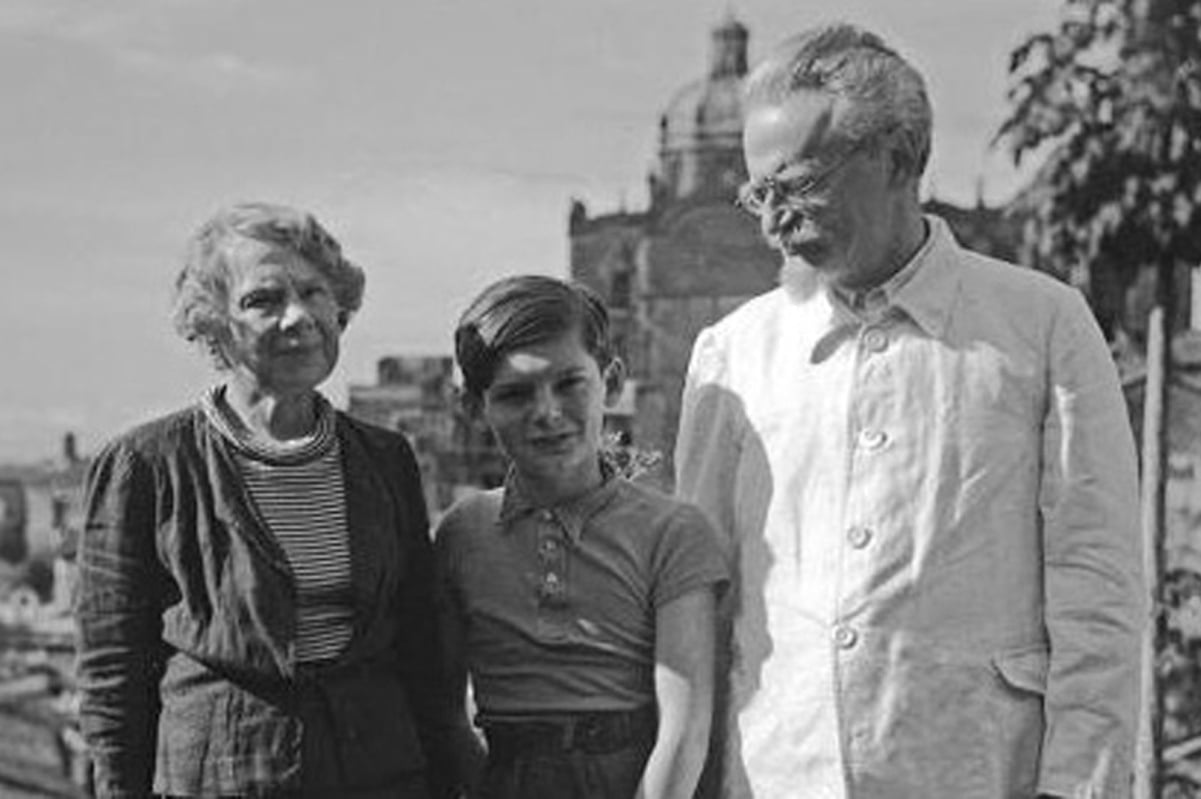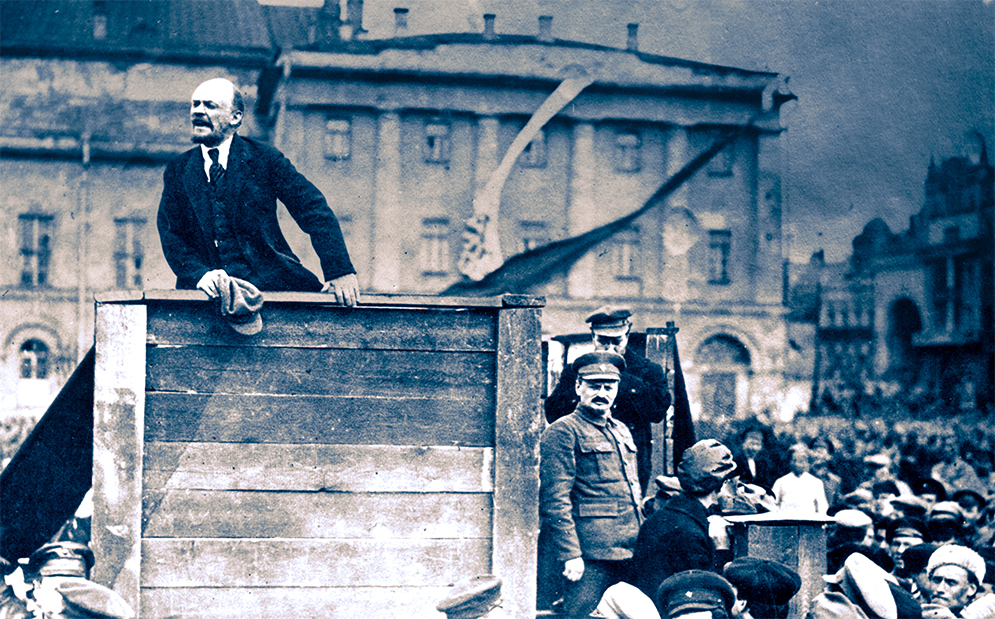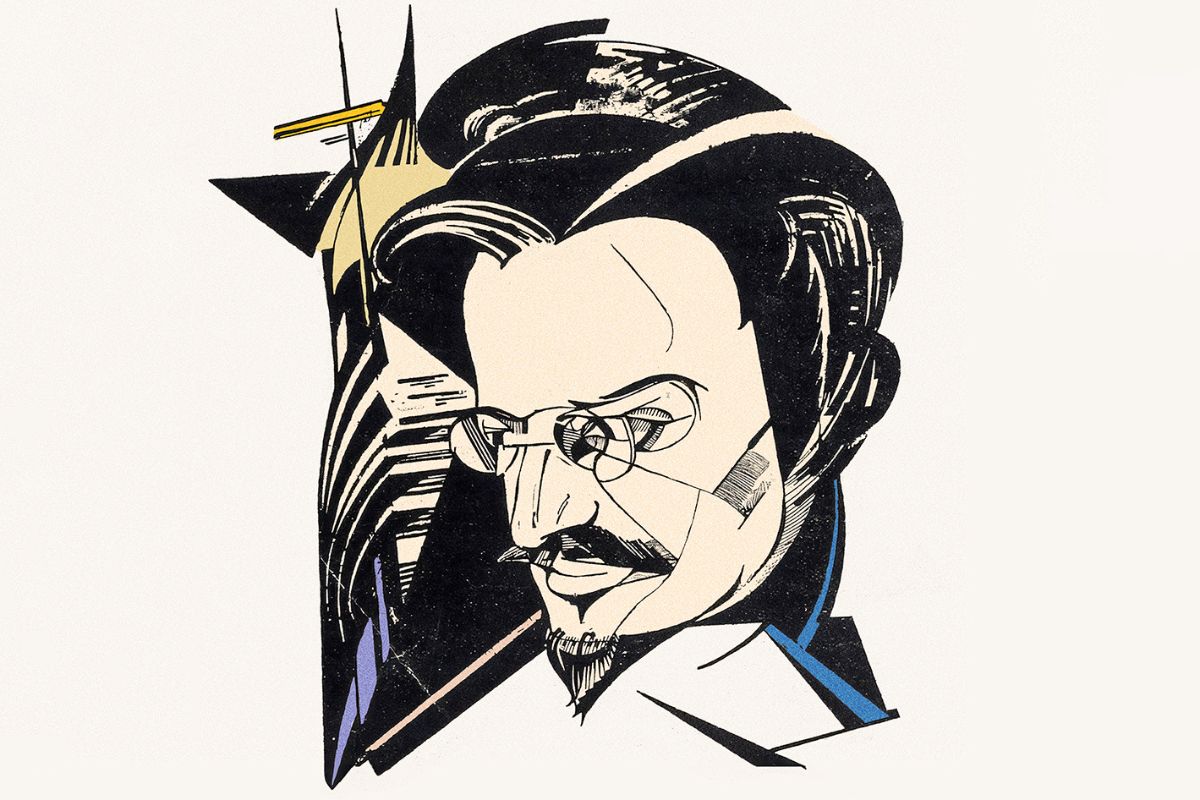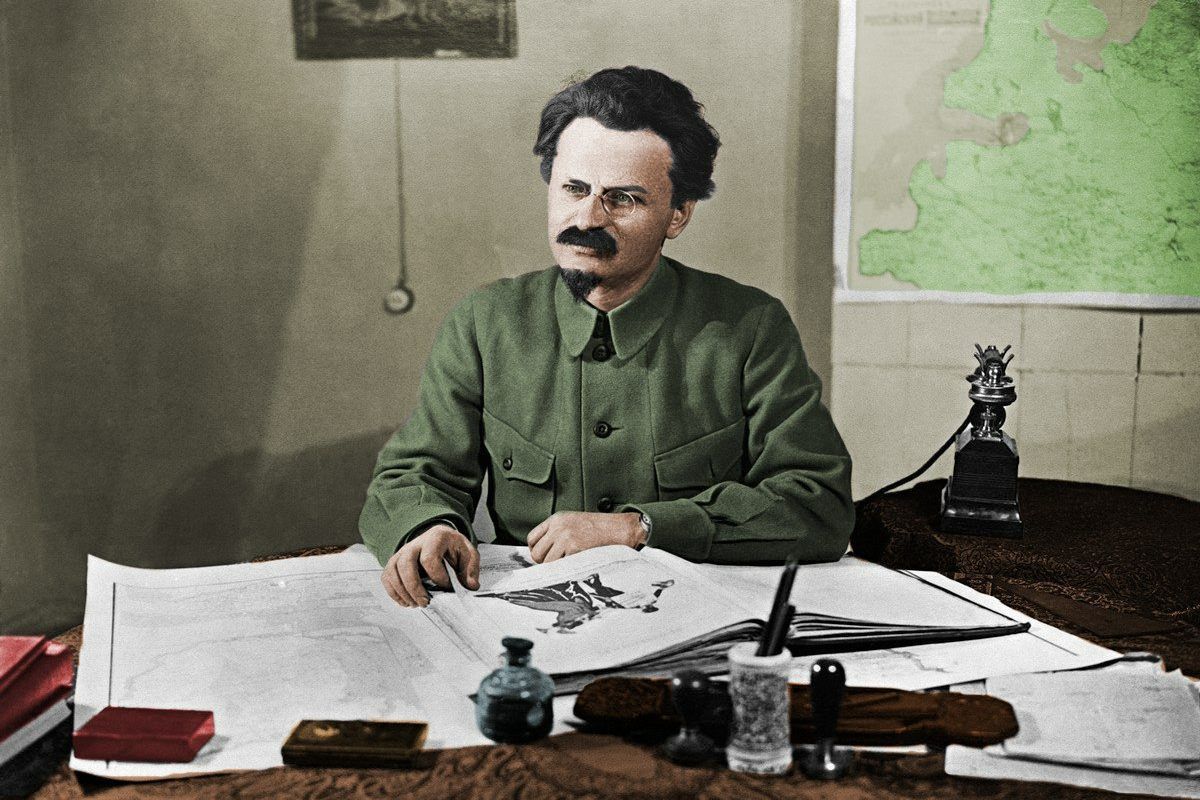At the recent October Revolution festival in London, Esteban Volkov, grandson of Leon Trotsky, spoke (via a video link from Mexico) to a packed room of revolutionary activists in celebration of the centenary anniversary of the 1917 Bolshevik Revolution.
In 1988, Alan Woods interviewed Esteban Volkov in the Trotsky Museum in Coyoacan, Mexico, which Volkov is the director of. In these extracts from the full interview, Esteban presents a strong defence of both Trotsky and the Russian Revolution of 1917.
First published in Militant, 17 June 1988
On the night of 24 May 1940, Esteban Volkov, then only 14 years old, was wounded in a brutal machine-gun attack by Stalinist supporters, from which the Trotsky family miraculously escaped alive. With no visible emotion, Esteban showed me the bullet holes which still remained in the wall of what had once been his bedroom. In the room alongside the study where his grandfather was murdered by a Stalinist agent, I questioned him about his past and the text below starts with his response to my question about his memories of Leon Trotsky himself.
Esteban Volkov: My first recollection is when I arrived in Turkey with my mother, on the island of Prinkipo where my grandfather was living in exile with my adoptive grandmother, Natalya. I lived there for about a year. I remember accompanying him on fishing expeditions among the islands in the sea of Marmora. I was five years old then. That was the first time I met my grandparents.
In August 1939, I finally went to live with them in Mexico, one year before the assassination. I travelled to Mexico with Alfred and Marguerite Rosmer. I was then thirteen years of age, so I can remember a lot more.
Alan Woods: How do you remember your grandfather’s work?
EV: He was a tremendously active and extremely dynamic person. He always got up very early and used to spend some time feeding the chickens and rabbits, which were a source of food for us, before getting down to work. That was his way of getting a bit of physical exercise. You must remember that he was virtually locked up in this house, with no other opportunity of getting about. After that he had breakfast, and then spent virtually the whole day in his study, till 5, 6 or 7 o’clock, reading and working on his books and manuscripts. Then at night there were usually political discussions with the comrades.
AW: What do you remember of your grandfather’s assassination? Did you know his assassin, Jackson?
EV: Mercader? Yes, I remember him. He was one of a number of people who hung around the place. He took great pains to get on friendly terms with the guards and also with the Rosmers. He was always doing them little favours, giving them lifts and so on. But he did not at first express an interest in meeting Trotsky himself.
AW: And do you remember the assassination itself?
EV: I arrived late on the scene. I had been at school all afternoon and was walking home when I noticed unusual movements around the house, with people coming and going and a car parked outside. I suddenly felt a strange feeling. A kind of anguish, like a premonition that something was badly wrong.
I went in and saw a lot of people in a state of tremendous agitation. Some policemen were holding on to Mercader who had been beaten up by the guards and was bleeding. He was completely beside himself, weeping and blubbering. Then I went into the study and saw my grandfather stretched out on the floor. It seems he had told them to keep me away. That made a big impression on me that with his dying breath he should be so concerned about a child. Shortly afterwards the ambulance came and took him away.
AW: Now to pass on to the field of politics, how would you describe yourself politically?
EV: Well, as you know, I am not a member of any political party. However, I would describe myself as a Marxist because I consider that Marxism is the only valid political theory in the modern world.
AW: But with regard to the hundreds of thousands of comrades who perished under the Stalin terror, including so many members of your own family, how would you describe your own involvement in the fight for their political rehabilitation?
EV: I believe that any person who sincerely defends the ideas of socialism is under a moral obligation to fight to re-establish the truth about the history of the Russian revolution and for the rehabilitation of all Stalin’s victims, and to denounce all the crimes and falsifications of Stalinism. It is necessary to fight to ensure that never again will such a monstrous regime be allowed to exist, and worst of all under the name of ‘socialism’ and ‘communism’.
AW: And the Moscow trials?
EV: It is imperative that all those monstrous falsehoods be exposed and denounced, and that every page should he expunged and cleansed, so that there is not the slightest remnant of the slanders used to blacken a whole generation off revolutionaries. The process must be carried through to the end.
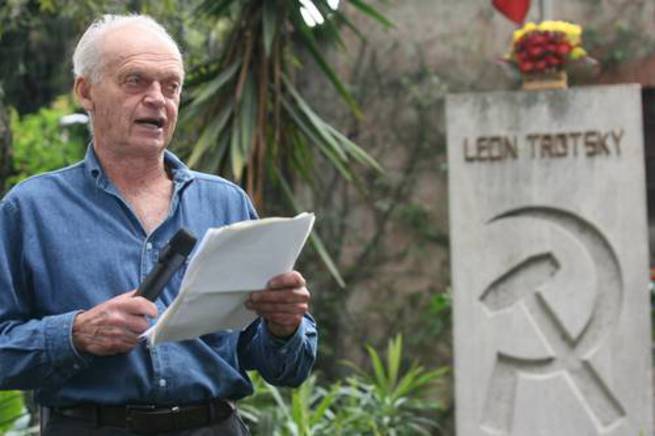 AW: Do you still think the October Revolution was justified in the light of the experience of Stalinism?
AW: Do you still think the October Revolution was justified in the light of the experience of Stalinism?
EV: Of course it was! Whether we like it or not, the historical process is full of all kinds of ups and downs, including violent upheavals, involving tremendous human suffering. But nevertheless society moves forward. The October Revolution was one of the greatest events in the whole of history. The fact that it subsequently took a different course, arising out of the concrete situation in Russia at that time, and the fact that the revolution did not spread to other countries, does not alter that fact in any way. Don’t forget that in France too, after the revolution of 1789-93, there were important setbacks, but in the long run the revolution – in this case the bourgeois revolution – succeeded in consolidating itself.
AW: As a Marxist and someone who believes in the socialist future of mankind, would you like to give your view of the future?
EV: I consider it indisputable that mankind must arrive at a form of society which is at harmony with itself. How can we continue to live on an atomic minefield, squandering colossal resources, while millions are suffering from the lack of the minimum necessities of human existence?
The level of technological development is more than sufficient to provide abundance for the whole human race. It seems absurd that the perpetuation of an outlived social structure based on class inequality and exploitation should continue to be the cause of artificial shortages and enormous suffering. The development of science and technique in itself provides the answer to all these problems, if it were placed on a harmonious and planned basis.
AW: In conclusion, do you have any message to British workers and socialists?
EV: Only to encourage them to keep the banner of socialism flying, to rally to the ideas of Marxism and never to give up the fight for the real socialist society.

